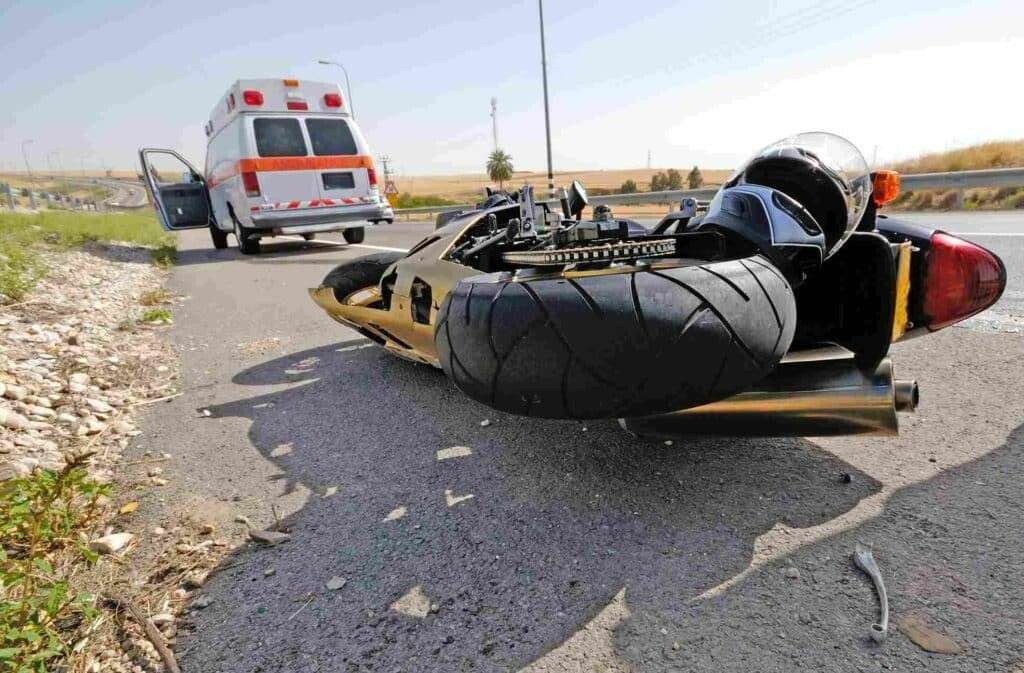A serious motorcycle accident can result in painful injuries, emotional distress, and endless financial consequences. Many victims struggle to move forward. If you are unfortunate enough to be harmed in a motorcycle accident, it is vital to understand your legal rights. Our San Antonio motorcycle accident lawyer is here to explain.
Determining Liability Following Your Accident
To demonstrate liability, you must be able to prove negligence existed at the time of the accident. This includes showing the following:
- Duty of Care: The first step in proving negligence is establishing that the defendant owed a duty of care to you. In a motorcycle accident, drivers must exercise reasonable care and skill in operating their vehicles.
- Breach of Duty: Next, you must demonstrate that the defendant breached their duty of care by engaging in reckless action. This can be done by demonstrating that the defendant violated traffic laws or operated their vehicle recklessly by speeding, failing to yield, or tailgating.
- Causation: You must also establish a direct connection between the breach and the motorcycle accident. This requires proving that the defendant’s actions or inactions caused the crash. For example, causation would be established if a driver ran a red light and collided with the plaintiff’s motorcycle.
- Damages: The final step in proving negligence is demonstrating the damages you suffered. This includes any medical expenses you suffered, lost wages, and more.
Several factors can contribute to motorcycle collisions. Identifying the cause of your crash is vital.
Common Causes of Motorcycle Accidents
Motorcycle accidents often occur as a result of negligence. Although motorcyclists are often stereotyped negatively, the majority of accidents in which they are involved are a result of other drivers sharing the road. Common causes of these accidents include:
Distracted Driving
Drivers not paying attention to the road ahead significantly increase the likelihood of crashing into others nearby. Common distractions include cell phones, food, and passengers.
Failure to Yield Right of Way
Drivers not yielding the right of way to motorcycles, especially at intersections, can result in collisions.
Speeding
Excessive speeding by either motorcyclists or other drivers increases the likelihood of accidents and can result in more severe injuries.
Impaired Driving
Driving while impaired can severely impact a driver’s ability to control their vehicle. Consequently, drivers are likelier to drift out of their lanes and crash into nearby vehicles.
Weather Conditions
Adverse weather conditions, such as rain, fog, or strong winds, can make road surfaces slippery and reduce visibility, contributing to accidents.
Left-Turn Accidents
Many motorcycle accidents occur when drivers turn left without checking for motorcycles and other vehicles.
You could take legal action if you were hurt in a motorcycle accident due to another motorist’s reckless actions. A personal injury attorney in San Antonio can help you prove liability to prevail.
Pursuing a Personal Injury Claim for Compensation
After a motorcycle crash, victims can file a personal injury lawsuit against the responsible driver. This lawsuit can help victims obtain financial relief for some of the losses and damages resulting from the crash. This can include:
- Medical Expenses
- Lost Wages
- Property Damage
- Pain and Suffering
- Emotional Distress
- Loss of Consortium
- Rehabilitation Costs
- Loss of Enjoyment of Life
- Scarring or Disfigurement
The statute of limitations in Texas provides victims up to two years to file a claim against the responsible party. However, contacting a personal injury attorney in San Antonio as soon as possible will ensure you have the most substantial evidence and the best chance of getting justice.
It is essential to note that even if you shared some fault for the accident, the state’s comparative negligence laws still enable you to recover compensation for your damages.
Understand the Laws of Comparative Negligence
The comparative negligence laws in Texas are crucial in personal injury cases, including motorcycle accidents. These laws determine each party’s responsibility in an accident and assign damages accordingly. In a motorcycle accident case, these laws help determine the liability of all parties involved and the compensation that may be awarded to the injured party.
The comparative negligence law in Texas operates on a “proportionate responsibility” basis. This means that if both parties involved in an accident are at fault, the damages awarded to the injured party are reduced in proportion to their percentage of fault. If the plaintiff is found to be partially responsible for causing the accident, their damages are reduced accordingly.
In a motorcycle accident case, the application of the comparative negligence law can be complex. The plaintiff, who suffered injuries as a result of the accident, has the burden of proving that the defendant’s negligence directly caused their injuries. However, if the plaintiff is found to have been negligent in any way, their damages will be reduced accordingly. A personal injury attorney in San Antonio can help you prove liability following your accident to receive fair compensation.
Call Our San Antonio Motorcycle Accident Lawyer Now
At Patterson Law Group, we understand the unique risks and challenges of motorcycle riding. That’s why our personal injury attorney in San Antonio is dedicated to helping those injured in motorcycle accidents. We strive to ensure that our clients receive the maximum compensation they deserve for their injuries and losses.
Contact our law firm for a free consultation if you have been injured in a motorcycle accident. Our experienced and compassionate San Antonio motorcycle accident lawyer at Patterson Law Group is here to help you through this difficult time.




